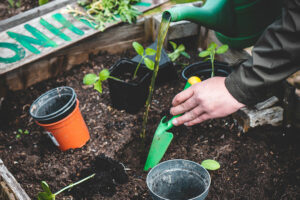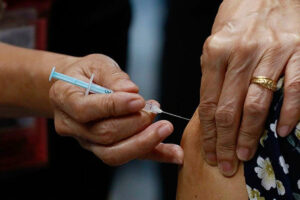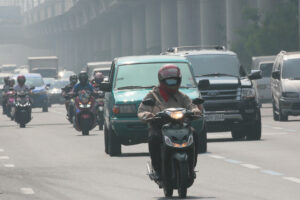Calling all plantitos and plantitas

(Part 1)
The looming food crisis (and even possible starvation here and in many parts of the world because of the Russia-Ukraine war) will require some quick emergency and urgent measures to increase our domestic supply of food. As a “plantito” (gardening enthusiast) myself, I recommend that the thousands of amateur gardeners who turned to growing vegetables, flowers, and decorative plants during the pandemic should all now focus on growing edible plants (especially vegetables) to add to the national supply both for self-consumption and for sale in the market. Since there is no data on how many there are of us belonging to this army of amateur gardeners, I cannot quantify how much we can contribute to improving food security at least in the coming months. Any amount will be better than none, however, considering the possibility of starvation for some, especially among the marginalized people. I am doing my share: I am growing red lady papaya.
It is obvious that this is an emergency solution to a crisis in food security. No reasonable person will consider it as a permanent solution or policy to attain the primordial objective of our President-Secretary of Agriculture in improving agricultural productivity in the country, and thus improve the lives of the farmers who are among the poorest of the poor. This is a short-term solution to a food crisis brought about by not only the war going on in Ukraine (a major supplier of food and feeds) but also by the African Swine Fever (ASF) that has been diminishing the supply of hog products for some time now. To the hog supply problem, there is no alternative but to import pork. To the serious shortage of the staple products of rice and corn (because rice exporting countries such as Vietnam, Thailand and even India are banning exports of these crops), the short-term strategy is to try to be as self-sufficient as possible in these vital food products, no matter what the cost. Self-sufficiency is being recommended because of a crisis situation.
We have to keep in mind, however, that as in the case of us plantitos and plantitas wanting to be part of the solution during these times of crisis, we know that we will have to bow out once things return to normal. The same thing can be said of other solutions, whether importing pork in which we can be self-sufficient when are able to lick the ASF problem. Or as in the case of trying to be self-sufficient in rice, in which we can never be as cost effective as our Thai, Vietnamese, or Indian neighbors. When things return to normal and these countries with a competitive advantage in the production of rice no longer ban exports, it would be wise to import part of our rice requirements to promote the welfare of our 112 million consumers vs. that of the 2 million rice farmers. Food security measures always involve balancing the welfare of consumers with that of the farmers.
But let me turn to other low-hanging fruits in improving the supply of food that, if followed during these times of crisis, can actually be long-term solutions to food security. I am referring to developing an army, not of amateur gardeners like me, but of “master gardeners” who can be trained among numerous unemployed or underemployed workers. A friend of mine, Dr. Napoleon Juanillo, who obtained his Ph.D. in Agriculture from Cornell University in the US, informed me of the Master Gardner Basic Training program which is an extension program of Penn State University. This is a skills training program (non-degree) which include topics such as botany, plant propagation, soil health and fertilizer management, composting, controlling pests safely, entomology, plant diseases, indoor plants, vegetables, lawn care, pruning, woody ornamentals, herbaceous plants, native plants, weeds and invasives. Unlike amateur gardeners that we plantitos are, master gardeners, without having an academic degree in agriculture, are steeped in agricultural technology. Master gardeners are required to participate in a minimum of 40 hours of basic training. To become a master gardener, each trainee is expected to attend all core classes, with any missed sessions to be made up at the discretion of the supervising Master Gardener Coordinator. There is no reason why President Marcos Jr. cannot mandate some selected State Universities and Colleges (SUCs), especially in land-rich provinces, to put up skills training programs in the coming months in order to increase significantly the supply of vegetables and other quick gestating food crops.
There are other US universities from which we can learn about organizing skills training programs for master gardeners. At the University of Illinois Urbana-Champaign, its Illinois Master Gardener program has the mission of “helping others learn to grow.” To become a Master Gardener, one only needs an interest in gardening, time to volunteer in the community, and a desire to share one’s knowledge with others. Master Gardener training, taught by University of Illinois Extension educators and specialists, emphasizes practical, research-based information. Training topics include botany, annuals and perennials, soils, insects, woody ornamentals, vegetables, fruits, integrated pest management, and wildlife. After the training program, Master Gardeners volunteer their time and expertise by sharing their horticulture skills with the community through garden projects, educational outreach, and helping others learn to grow. Still another is the Michigan State University whose extension master gardener training program is an adult horticulture education and volunteer leader training program committed to improving science-based horticulture information in communities throughout the State. Courses are being offered via Zoom and D2L.
These master gardening programs can be part of the reskilling, upskilling, and retooling programs that are taking the place of degree programs in the Philippine educational system. The pandemic has opened the eyes of our educators that many of the post-secondary programs we are offering have no direct relevance to the needs of industry and agriculture. What we badly need are non-formal and informal means of imparting skills to our unemployed and underemployed that in a very short period of time can enable them to be fully employed. Recent data from the Philippine Statistics Authority show that as of May 2022, 2.93 million Filipinos were unemployed while 6.67 million were underemployed (those looking for additional work hours or better job opportunities). The underemployment rate is equivalent to 14.5% of the work force. Just imagine how much more food can be produced if a good number of the unemployed and underemployed can take master gardening classes that in a few months can enable them to grow vegetables and other high-value food products in underutilized farms and empty lots in and around the National Capital Region and other urbanized areas in the country. Funding can come from the Department of Agriculture, now under the leadership of the President himself. A good number of NGOs and CSR programs of large corporations can also pitch in.
In fact, this very practical way of upskilling and reskilling Filipino workers to contribute to an increase of very healthy vegetable and fruit products was adapted to Philippine conditions by the private sector. The State institutions, especially the SUCs, have lagged behind. It was the SM Foundation, under the leadership of its founder, the late Henry Sy, Sr., who initiated the Kabalikat Sa Kabuhayan (KSK) in 2006 to provide a serious training program on simple and doable agricultural technologies for small vegetable farmers all over the Philippines. Since the start of the first project in Bacolod City in May 2007, the program’s 187th batch of trainees finished by the end of 2018. There have been more than 22,000 graduates who completed the 12 weekly sessions, hands-on, season-long training program on vegetable farming.
The agricultural technology and skills training program of SM Foundation has as its partner the Harbest Agribusiness Corp., a Philippine agribusiness enterprise that has been a most effective channel to the Philippines of the most relevant agricultural technology from Taiwan which did wonders in improving the productivity of their small farmers in the last century.
Under Chiang Kai-shek, the Taiwanese Government implemented a thorough agrarian reform program under which huge tracts of land (except in the sugar industry) were distributed to small farmers. Unlike our failed agrarian reform program, however, the State in Taiwan followed through with farm to market roads, irrigation systems, post-harvest facilities, and a myriad of other agricultural extension and credit services to the small farmers, thus enabling them to become rich. The Taiwanese also did a lot of scientific research to identify the types of machinery and equipment that were most appropriate to their small farms. They were also pioneers in the development of high-quality hybrid seeds, agri-plastics for soil and seedling health, sustainable crop nutrition and protection inputs, climate-resilient greenhouse and irrigation systems, labor efficient machines like tractors and drones, and many more.
Fortunately, the founder of Harbest Agribusiness Corp., Arsenio Barcelona from Negros Occidental, found an appropriate Taiwanese company called Known You Seed to transfer all these advanced agribusiness technologies to the Philippines since 1997. With eight branches and over 100 dealers and partners throughout the Philippine archipelago, these products of Taiwanese technology are being brought to Filipino farmers nationwide.
With his exceptional entrepreneurial talent, the late Mr. Sy Sr. saw the potential of partnering in 1998 with Harbest Agribusiness Corp. to train vegetable farmers all over the Philippines with the very practical and down-to-earth advanced farming technology learned from Taiwan and other more successful East Asian neighbors. By improving the productivity of small vegetable farmers, SM has made it possible for Filipino consumers to have access to high-quality and reasonably priced products that could be sold in the SM outlets. Although there was a business element in initiating the project, it also had an eminently social purpose of helping the small farmers. Without knowing it, Mr. Sy Sr. was already starting what is known today as a “social enterprise.”
SM Foundation’s KSK program fits perfectly with the concept being proposed by President Marcos Jr. of asking the private sector (both business and civil society) to join hands with Government in the primordial goal of food security. From the very beginning, the Department of Agriculture (DA) has been a partner of the KSK. During the Duterte Administration, KSK linked up with the Office of the High Value Crops Development Program under Undersecretary Evelyn Lavina. A Memorandum of Agreement (MoA) with SMFI and the DA provided the basis for the closer involvement of its regional field offices. The Department of Social Welfare and Development (DSWD), in turn, partnered with KSK in providing trainees from among the 4Ps beneficiaries who are involved in farming or gardening of vegetables. DSWD’s role is to provide trainers to conduct training sessions on character formation and community development modules. These training modules were incorporated in the weekly KSK training sessions with Harbest.
(To be continued.)
Bernardo M. Villegas has a Ph.D. in Economics from Harvard, is professor emeritus at the University of Asia and the Pacific, and a visiting professor at the IESE Business School in Barcelona, Spain. He was a member of the 1986 Constitutional Commission.




